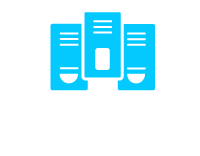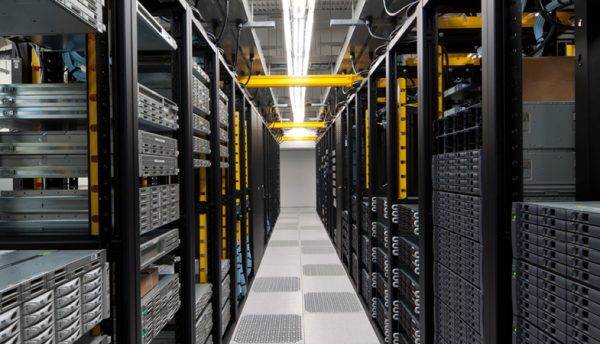
What would you describe as your most memorable achievement in the data centre industry?
Clinching the contract for an entire and sizeable data centre with a single customer for the first time, when all we had was a chunk of land and a promise of power and then to see it come up out of the ground in a few months, then through completion and commissioning and into live operation. This was nuts, compared with the level of demand five or 10 years back; I knew already that the cloud was big, but it made me realise just how big.
What first made you think of a career in technology/data centres?
Data centres didn’t exist when I started out, nor did the Internet. Computer Science wasn’t available as a degree – I studied electronic engineering at uni; it was the closest thing then to what we call tech now. It was an exciting time – we knew that video calls, digital cameras, networks of connected computers and mobile communications was all theoretically possible, but none of it existed as available products at the time. A career in tech was a forgone conclusion for me and I worked initially in communications, applications and systems. I remember when the first ‘carrier hotels’ appeared at the end of the 90s…they were quite a novelty. More recently I jumped to data centres and I’ve been lucky to witness the growth of the industry and the inevitable migration of networks, data and assets into the data centre.
What style of management philosophy do you employ with your current position?
It’s evolved. When I first started in leadership it was building a team by roles and then developing staff and facilitating them to do a great job. I have had to evolve management style over time. Right now, at Vantage my emphasis is on collaboration, so encouraging people to engage with one another because things are moving so quickly; it wouldn’t work otherwise. It seems more democratic these days – everybody has a piece of the jigsaw puzzle, so it needs everyone to feel valued and to work well together in an egalitarian environment in order to complete the picture together.
What do you think is the current hot talking point within the data centre space?
There’s a myriad of trending hot topics. Specifically in terms of talking points, I would say efficiency is really pertinent, particularly PUE. Recent high energy prices mean that consumed power is now the majority item in the cost of ownership and given that energy costs are unlikely to return to previous levels then the justification and payback on even small gains in PUE are greater than ever. No surprises then that we’re having lots of internal discussions and with supply chain on the design choices and methods we can deploy to make each data centre as efficient as it possibly can be.
How do you deal with stress and unwind outside the office?
COVID blurred the boundaries of being in or away from the office. When I heard rumours of lockdown, I rushed to buy an exercise bike. It’s a godsend which helped me through COVID and now I have the habit, I jump on it whenever my head gets too noisy. It’s amazing how exercise neutralises unhelpful thinking and helps with clarity. Jumping on the bike also substitutes for the wind-down of travelling when working from home; there’s benefits from flexible working, but I think we all have to be careful to de-lineate work from home life.
What do you currently identify as the major areas of investment in your industry?
I know it’s not our industry exactly, but I would say power. It’s reaching the point where the energy companies are struggling to meet the power demands of new data centre expansions in some of the more popular constrained markets. At the same time, operators and end-customers want increasing quotas of sustainable and zero carbon power. It’s a perfect storm at the moment, but one way or another it’s going to need significant planning and sustained investment from the energy industry and our own. For the operators, it will mean looking to locate data centres in alternate regions where extensible power is available and it may also see operators (co)investing in their own power projects.
What are the region-specific challenges you encounter in your role?
More locally in the UK, we have a heavy presence in Cardiff. The challenge has always been to change the minds of customers towards the ‘out of town’ proposition; historically enterprises have looked to traditional markets such as London for hosting, but increasingly they are seeing the advantages of more regional plays in terms of space, costs, flexibility, security and access to power.
Zooming out to Europe, I would say the region-specific challenge is its diversity. Compared with the US, which is large but comparatively consistent, there’s far more diversity across the different European nations in culture, language, regulations, permitting, law and operations in each country. For an expanding operator like Vantage it creates a tension between the ease of deepening capacity in established markets such as Frankfurt versus the incremental costs/risks of jumping to new markets in other countries where we see a long-term expansion play. The simple answer is that we’ll be doing a bit of both.
What changes to your job role have you seen in the last year and how do you see these developing in the coming months?
My role hasn’t changed much. What has changed is the world outside as we emerged from lockdown and witness seismic geopolitical shifts. I remember the well-known maxim from Jack Welch; ‘If the rate of change on the outside exceeds the rate of change on the inside, the end is near.’ So, my role hasn’t changed much, but how I approach it is constantly changing. The same is true for Vantage, we’re moving fast and continuously evolving as we grow and this is what we must do to stay ahead. As for the coming months, it’s a simple case of more of the same – learning to keep a steady head in a rapidly changing world.
Click below to share this article


